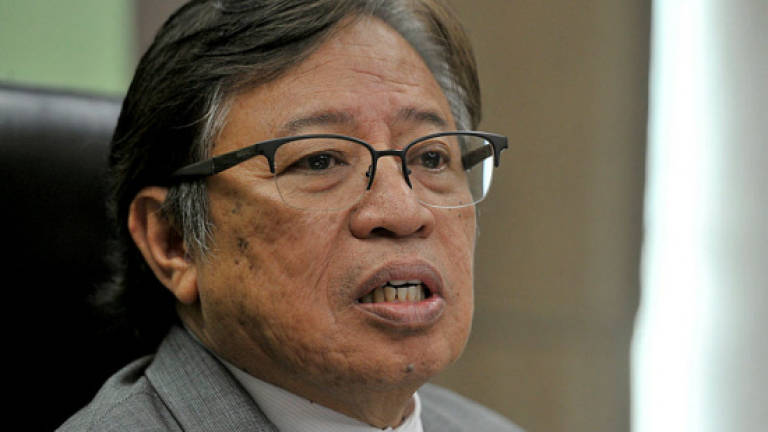Sarawak poised to become leader in biomass industry in Asia

KUCHING: Sarawak is set to become the leader and potentially Asia's first integrated biomass cluster or BioHub, leveraging its other existing bio-resources that could be integrated to complement and exemplify the concept of a sharing economy.
Chief Minister Datuk Patinggi Abang Johari Tun Openg said the assessment showed that the state had tremendous potential to capitalise on its biomass towards generating RM4.8 billion in additional gross national income (GNI), creating 30,000 job opportunities and RM18 billion in investment opportunities throughout the entire biomass value chain.
"Sarawak intends to diversify its economy through bio-economy, with biomass as an integral part of that transition. As such a detailed roadmap and an action plan would be implemented by a federal-state task force led by the State Planning Unit (SPU)," he said at the launch of the International Biomass Industry Conference Malaysia 2017 here today.
The text of his speech was read by Sarawak Deputy Chief Minister, Datuk Amar Douglas Uggah Embas.
Abang Johari said a feasibility study led by a steering committee comprising relevant state government representatives and chaired by the Director of SPU had helped to gauge the real biomass volume available, the cost and eventually the mix of potential sustainable downstream activities that would benefit the people as well as create real social and economic impact.
"Sarawak can host ten biofuels or biochemical plants in various stages of the development, mobilising six million dry tonnes out of the 19 million dry tonnes of biomass in four specific clusters of Bintulu, Miri, Tanjung Manis and Kuching in next 10 to 15 years, he said.
"We understand capturing this opportunity is by no means easy but we are in the best position to realise our potential and support Malaysia's aspiration in the National Biomass Strategy 2020.
"Sarawak is a big land mass, so the state government in collaboration with the federal government must continue to improve the industrial infrastructure, transportation networks and logistics system to meet the demands of the new growing industries like biomass," he said.
Abang Johari said with the introduction of the state's Digital Economy initiatives, Sarawak Biomass Industry Development Plan would be strengthened through the state holistic approach towards digitisation that will impact all parts of the value chain.
"The greening of Sarawak's industrialisation efforts is therefore a paradigm shift for us, as we have traditionally been mere exporters of raw natural resources namely timber, oil and gas and crude palm oil.
"We are confident that a realistic and well-executed biomass industry development can contribute towards Sarawak becoming a high-income state with a more balanced development," he added.
Subsequently, Sarawak could help Malaysia position itself as the regional biomass processing hub for high-value downstream applications, he added.
As for the international biomass community, Abang Johari assured that Sarawak was committed to bringing the biomass industry to the next level, adding the state could be their destination for forging partnerships and alliances as its biomass resources had become the platform for many bio-based businesses to implement their regional and global expansion initiatives.
"Given the enormous amount of biomass that we have, we are blessed to be given this opportunity. Let me reassure you that Sarawak is very committed to realising its aspiration of becoming the regional biomass processing hub for downstream biomass activities," he added. — Bernama